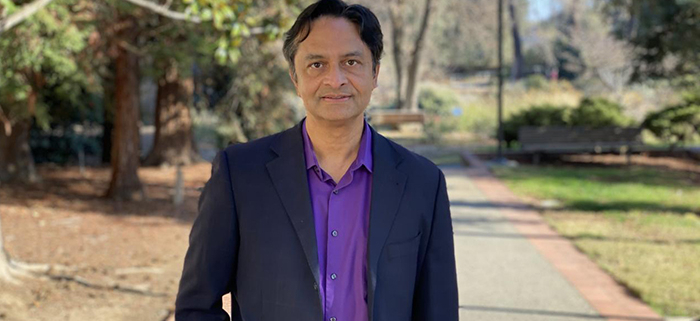UC Davis CITRIS Leader Saif Islam Receives the Innovation Fellowship and AIC Awards
The Center for Information Technology Research in the Interest of Society and the Banatao Institute (CITRIS) at the University of California recently announced the inaugural recipients of the 2024 CITRIS Innovation Fellowship and AIC Awards.
Saif Islam, professor and chair of the electrical and computer engineering department and campus director of CITRIS at UC Davis, and his group, have been named as one of the three recipients of the Innovation Fellowship and AIC Awards. The fellowship is an inspiring initiative to advance University of California research and technology solutions from the lab to the marketplace for societal benefit.
The program received more than 65 entries from across CITRIS’s four campuses at Berkeley, Davis, Merced and Santa Cruz. Islam’s proposal is one of the three winning proposals that tackle the issue of safeguarding essential infrastructure and sensitive data through breakthroughs in cybersecurity. Islam will receive up to $200,000 over two years to commercialize innovations, along with support from AIC and the CITRIS Foundry incubator. Members of Islam’s team include doctoral researcher Amita Rawat and Ph.D. students Ahasan Ahamed, Rifat Bin Sultan and Lisa McPhillips.
“We’re excited to develop a hardware security solution beyond guarding entry points—it fortifies the foundation. With the support of the Innovation Fellowship and AIC Award, our team will create a working prototype to explore the system-wide impact of this innovative optoelectronic security technology,” said Islam.
Islam is developing a technology that aims to protect computer networks and the rising number of Internet of Things from security threats. Many of the current cybersecurity systems rely on random number generation to keep data safe. However, these numbers are often not truly random, making them susceptible to prediction and thus compromise.
The awarded project titled, “Advanced hardware security with unclonable ID protection enabled by photonic technology,” aims to develop an innovative chip that uses light to generate unpredictable random numbers. By harnessing tiny, natural variations in how photodiodes interact with the chip’s surface during manufacturing, this process generates unique patterns that are physically impossible to replicate, making the chip highly secure. This technology has the potential to safeguard a wide range of systems, from personal devices to critical infrastructure, against cyberattacks.
About CITRIS
CITRIS at UC Davis, a special research program within the Office of Research, brings expertise in engineering, nanoscience, law, and medicine to bear on complex challenges related to food, health, the environment, and society. Learn more here.







